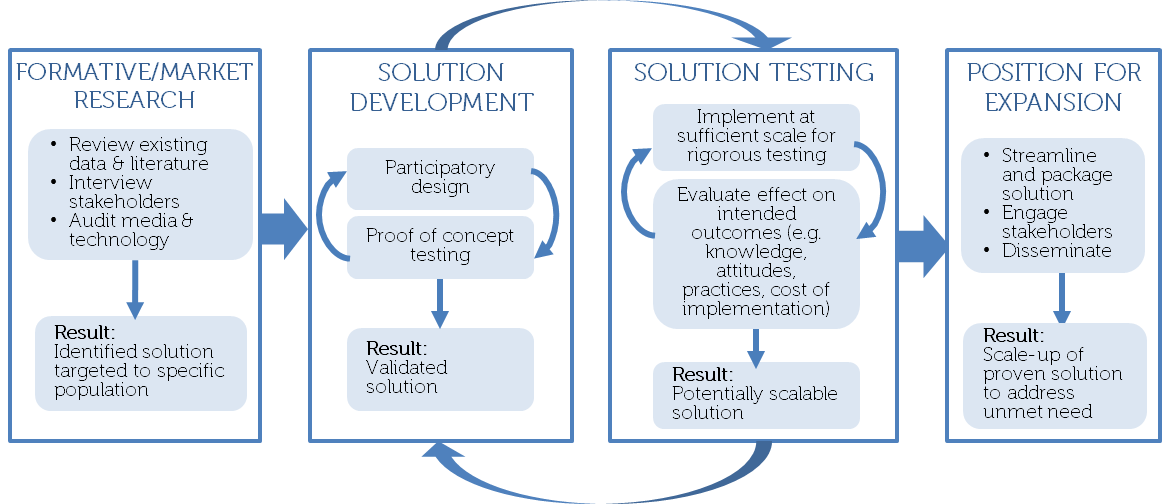What We Do
Through partnership with international and local organizations, the Institute for Reproductive Health (IRH) at Georgetown University strives to:
- expand family planning choices to meet the needs of women and men worldwide;
- advance gender equality by helping women and men across the lifecycle learn about and take charge of their reproductive health; and
- involve communities in reproductive health interventions that improve their wellbeing.
Our History
IRH was founded in 1985 as part of the Georgetown University Medical Center to address family planning gaps worldwide. The primary focus of our early work was meeting the global demand for fertility awareness-based, or natural, methods. This work included research on the development and implementation of new, easy-to-use fertility awareness-based methods of family planning.
Today our work is much broader. It touches many cross-cutting themes within reproductive health such as Family Planning, Adolescents, Gender Equality, Fertility Awareness, Strategic Scale-up, Mobilizing Technology for Reproductive Health, and Monitoring, Learning & Evaluation. We also go beyond research and development of new reproductive health tools and focus on introduction and scale-up of sustainable approaches.
Our work has been made possible thanks to Georgetown University, USAID, partners both centrally and in field programs, and the thousands of women and men around the world who have participated in our research.
Our Approach
IRH has over 25 years of experience in designing and implementing evidence-based programs that address critical needs in sexual and reproductive health. The hallmark of our work is translating scientific data into simple and practical guidance for clinic- and community-based reproductive health programs. This is accomplished using a Solution Development Cycle, which helps us move evidence-based research into promising solutions. Key principals to this approach include:
- Identification of high impact opportunities
- Rigorous formative research, ongoing testing, and active participation of stakeholders
- User-centric design of new products based on needs of our users
- Tailored solutions that integrate the product into the market for sustainability and scale
 Where We Work
Where We Work  Press Room
Press Room  FACT Project
FACT Project  Passages Project
Passages Project  Learning Collaborative
Learning Collaborative  Search All Resources
Search All Resources  Social Norms
Social Norms  Fertility Awareness Methods
Fertility Awareness Methods 